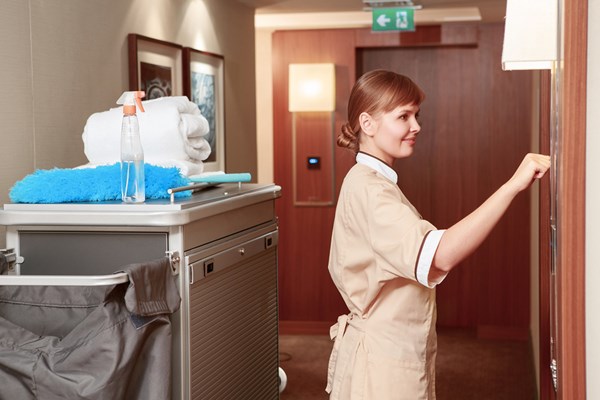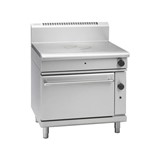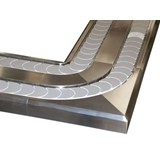The Inquiry found that housekeepers working at 4 and 5-star hotels in Melbourne, Sydney and Brisbane were not being paid their minimum lawful entitlements.
Fair Work inspectors investigated housekeeping services within Starwood Hotels and Resorts Worldwide Inc, The Accor Group and Oaks Hotels & Resorts Ltd.
After reviewing a sample of hotel sites, they found dozens of housekeepers - whose roles included vacuuming, turning down beds, cleaning, restocking consumables and washing - had been short-changed more than $57,000.
Many of them were vulnerable employees - international students and backpackers on the 417 working holiday visa, mostly from China and Korea.
The three hotel chains were targeted for attention by the Fair Work Ombudsman after it received intelligence about the employment practices of 4 and 5-star hotels.
- Starwood globally owns and operates about 1200 properties throughout the world, including Sheraton, Four Points, Westin and Starwood hotels in Australia.
- Accor operates more than 3700 properties internationally, with more than 40 hotels in Australia, including Ibis and Ibis budget hotels.
- Oaks Hotels & Resorts Ltd operates 43 properties across Australia, as well as facilities in New Zealand, Thailand and the United Arab Emirates.
After Oaks Hotels & Resorts learned of our intention to file legal proceedings against the sole contractor providing its housekeeping services - Housekeepers Pty Ltd - both companies have signed Enforceable Undertakings with the Fair Work Ombudsman agreeing to terms and conditions which both initially declined.
Enforceable Undertakings (EU) were introduced by legislation in 2009 and the Fair Work Ombudsman has been using them to achieve strong outcomes against companies that breach workplace laws without the need for civil court proceedings.
Outcomes arising from the Inquiry include three Enforceable Undertakings, the issuing of eight Letters of Caution, six Compliance Notices and two on-the-spot fines.
Oaks has acknowledged through the EU that its operating model led to a situation where housekeepers were highly vulnerable to exploitation - and that it has a moral and ethical responsibility to ensure that all entities and individuals within its supply chain comply with workplace laws.
Industry data tells us that most cleaners working in this country are female, many from non-English speaking backgrounds, that they have low education levels and are employed on a part-time or casual basis.
It is not acceptable for an employer to take advantage of any worker, especially overseas workers who speak limited English and have limited understanding of their workplace rights.
The community expects more from established and profitable brands to ensure that workers on their sites, whether directly employed or not, are treated and paid fairly.
We have minimum pay rates in Australia, they apply to everyone, and they are not negotiable.
Employers cannot undercut minimum wages, even if their employees offer to accept lower rates – and they must keep accurate time-and-wages records at all times.
The Inquiry has recommended both Starwood and The Accor Group enter compliance partnerships with the Fair Work Ombudsman.
We offer compliance partnerships to employers who want to publicly demonstrate their commitment to creating compliant, productive and inclusive Australian workplaces.
Once again, this Inquiry has clearly highlighted the need for lead businesses in Australia to ensure their labour supply chain arrangements are compliant.
It is a failure not only of legal responsibility, but moral and ethical leadership, for large corporates to seek to 'contract out' the wages and conditions of their workforce without ensuring good governance and compliance.
Fair Work inspectors discovered a common practice for housekeepers to be paid a flat rate for each room they cleaned, whereas they should be paid under the terms and conditions of the Cleaning Services Award 2010.
Many businesses providing housekeeping services to the hotel chains were mistakenly paying wages according to the Hospitality Industry (General) Award.
The Inquiry found that employers had failed to pay applicable penalty rates, reimburse employees for the cost of specialist clothing, provide a regular pattern of work for part-time employees or apply accrual of leave entitlements.
They also failed to maintain records of the employment status of their workers and rosters did not have start and finish times, making it difficult to distinguish between ordinary time and overtime.
Principal cleaning contractors tendered for work with the hotel groups based on a "rate per room" - a model heavily influenced by the need for hotels to swiftly amend their labour supply based on occupancy levels.
In some cases, the hotels penalised their principal contractors if they deemed that the quality of service provided was below an expected standard.
Some sub-contractors were making unauthorised deductions from the wages of their employees for lost equipment or failure to complete six months continuous service.
As part of the Inquiry, Fair Work Ombudsman inspectors made unannounced site visits to each of the hotel chains to speak to housekeepers directly.
The Inquiry found that most contractors supplying housekeepers to each of the hotel chains were correctly engaging their workers as employees, but were largely unaware of their obligations under federal workplace laws.
The only exception was Housekeepers Pty Ltd, which was the sole principal contractor for Oaks Hotels & Resorts Limited. Housekeepers Pty Ltd engaged its workers as independent contractors, whereas we alleged they should have been classified as employees.
We view the conduct of Housekeepers Pty Ltd and Oaks Hotels & Resorts Limited more seriously than other contractors and hotel groups that were the subject of this Inquiry.
While others applied the wrong industrial instrument or failed to correctly apply all provisions of an industrial instrument, in contrast, Oaks and Housekeepers established an independent contracting operating model which meant that workers did not receive wages and conditions they were entitled to as employees.
After initially declining to do so, Oaks Hotels & Resorts Ltd has signed an Enforceable Undertaking (EU) with the Fair Work Ombudsman after the Agency expressed concerns about its housekeeping procurement practice.
Oaks changed its mind about signing an EU after receiving advice that we intended to file legal proceedings against its housekeeping services provider, Housekeepers Pty Ltd.
Both Oaks and Housekeepers declined Enforceable Undertakings in the terms initially offered by the Fair Work Ombudsman and sought significantly different terms which, importantly, did not admit that their workers were in fact employees.
After notifying Housekeepers Pty Ltd of our intention to file legal proceedings, Oaks Hotels & Resorts Limited and Housekeepers Pty Ltd subsequently asked us if they could sign EUs, and they did so on the terms originally offered by us.
Oaks former Chief Operating Officer was issued with a Letter of Caution.
Established by Oaks in 2008, Housekeepers Pty Ltd has also reimbursed almost $13,000 to 16 of its underpaid workers.
Significantly, as a result of the Inquiry, Housekeepers has converted the status of its housekeepers from independent contractors to employees.
Outsourcing is a legitimate business arrangement - but in my experience, in highly competitive markets for low-skilled work, it also increases the risk that workers will be underpaid, sometimes quite deliberately.
Increasingly, if we find a business underpaying workers and that business is part of a supply chain, we are looking look up to the top, because the business at the top of the supply chain is the price-maker and controls the settings.
This should come as no surprise to the boardrooms of big business around Australia - I have been flagging this approach since an address I gave in August, 2014, entitled "Reputation, Risk and Responsibility".
The law can extend legal liability to individuals involved in procurement and to companies further up the supply chain.
So if boardrooms are not considering these procurement and compliance risks involved, then someone is asleep at the wheel.
I have said previously that I am committed to building a culture of compliance across Australian workplaces by setting priorities and using the tools available to my Agency to hold people to account and influence, or change behaviour and reduce harm.
We will use a range of levers, reputational, structural, environmental and, where necessary, legal, to achieve behavioural change from the top down to ensure the lead businesses step up and take responsibility for what’s happening in their business.
(The good, the bad and the ugly - navigating the road to compliance - a speech to the Australian Industry Group PIR Conferenceon May 2).
Recommendations:
As a result of the Inquiry, the Fair Work Ombudsman has emphasised the need for hotel chains to:
- Ensure pricing schedules and tender documentation comply with Modern Award obligations and entitlements at all levels of the supply chain,
- Provide principal contractors with the occupancy summary of each site to ensure compliance with the rostering provisions of the relevant Award,
- Exercise a greater degree of care in assessing the cost to deliver housekeeping services, and
- Seek professional advice on whether their procurement practices are lawful.
Hotels are also urged to seek the advice of the Cleaning Accountability Framework to ensure their contractors are meeting their lawful obligations to employees they engage to work as housekeepers at their properties.
We will ask the hotel chains to report back within a year on what action they have taken to improve their corporate governance framework and procedures with respect to housekeepers.
Further, Fair Work inspectors will make follow-up site visits within 12 months to hotels, principal contractors and sub-contractors to evaluate their compliance.
Outcomes:
While the Fair Work Ombudsman will now not pursue legal proceedings against Housekeepers, we are pleased that both it and Oaks have committed to a broad range of actions to ensure sustained future compliance with federal workplace laws.
Both Oaks and Housekeepers are required, among other things, to:
- Ensure that any workers underpaid since August 1, 2015, are repaid their full entitlements,
- Place an "apology" for their conduct on their respective websites and at their various workplaces,
- Place public notices in the Saturday editions of nine major newspapers around Australia detailing their contraventions and actions to be taken to ensure future compliance,
- Implement electronic time-keeping systems to accurately record the hours worked by all cleaners,
- Ensure all cleaners are issued with photo identification cards,
- Ensure principal and sub-contractors provide written notification that directors, officers and managers understand their obligations to comply with workplace laws,
- Terminate the contracts of any company found to have breached its workplace obligations, Organise training for directors and others with managerial responsibility on their workplace obligations, and
- Make a $20,000 donation each to the Cleaning Accountability Framework (CAF) to fund greater awareness and information about workplace rights in the cleaning sector.
The CAF was established by key industry participants to develop a culture of compliance with workplace laws across the industry.
Starwood Hotels and Resorts Worldwide Inc used four principal contractors to supply housekeepers to its properties, who in turn engaged three sub-contractors.
In relation to Starwood’s principal contractors, the Inquiry found:
- International Hotel Services Pty Ltd failed to create a regular pattern of work document for each of its part-time employees and used a rostering system that was not compliant. It was issued with a Compliance Notice and a Letter of Caution.
- Empire Hospitality Australia Pty Ltd failed to accrue the annual and personal leave entitlements of its employees correctly, failed to apply penalty rates correctly, failed to create a regular pattern of work document for each part-time employee or include finish times on their rosters. These contraventions resulted in underpayments of $17,000. It was issued with a Compliance Notice and a Letter of Caution.
- Silk Hospitality Services Pty Ltd failed to pay the minimum pay rate for juniors, failed to pay the applicable annual salary for a manager, failed to apply penalty rates correctly and failed to create a regular pattern of work document for each part-time employee. These contraventions resulted in underpayments of $8000. It has been issued with a Compliance Notice and Letter of Caution.
- Challenger Hospitality Pty Ltd failed to create a regular pattern of work document for each of its part-time employees. It was issued with a Compliance Notice and a Letter of Caution.
In relation to sub-contractors of the four principal contractors above, the Inquiry found:
- Express Web Ltd ceased operating and could not be located.
- ATM Cleaning Management Pty Ltd (see media release - 4.5 stars, but hotel housekeepers underpaid)
- TNM Service Pty Ltd failed to create and maintain records of the status of its employees and failed to pay minimum pay rates, penalties and casual loadings. These contraventions resulted in underpayments of more than $6000. It was issued with a Compliance Notice, an Infringement Notice and a Letter of Caution.
In relation to The Accor Group’s two principal contractors, the Inquiry found:
- AHS Hospitality Pty Ltd failed to create a regular pattern of work document for its part-time employees and was issued with a Compliance Notice and Letter of Caution, and
- Metro Housekeeping Pty Ltd, which also failed to keep a regular pattern of work document for its part-time employees, was also issued with an Infringement Notice and Letter of Caution.
In related compliance activities, the Fair Work Ombudsman last week announced that 59 cleaners had been reimbursed $17,000 after 54 cleaning companies nationally had been audited - see Cleaning industry compliance needs to improve.
Last financial year, the Fair Work Ombudsman received more than 7600 calls from cleaners concerned about their wages and entitlements. The Agency also dealt with 500 requests for assistance from cleaners, recording an overall contravention rate of 40 per cent.
Previous campaigns have identified similar levels of non-compliance.
In 2010-11, a national campaign found 37 per cent of 366 cleaning businesses audited had workplace breaches, and a total of $242,451 in underpaid wages and entitlements was recouped for 621 employees.
A follow-up campaign in 2012-13 showed an overall contravention rate of 38 per cent of 578 businesses audited and another $762,766 being recovered for 1212 underpaid employees.
Competitive tendering and tight profit margins may have compromised the ability of some cleaning businesses to meet their compliance obligations.
However, employers cannot not look to cut costs by under-cutting and ignoring minimum wage rates.
Employers and employees seeking information or advice are encouraged to visit www.fairwork.gov.au or call the Fair Work Infoline on 13 13 94 for free advice.
A free interpreter service is also available on 13 14 50.






-160x160-state_article-rel-cat.png)









